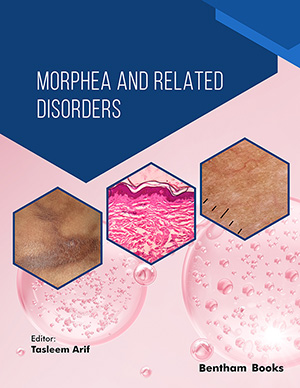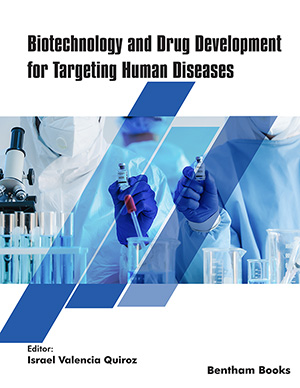Abstract
Peptides regulate most physiological processes, mainly by binding to specific receptors located on the cell surface and inducing a series of signals, neurotransmissions or the release of growth factors. There has been a rapid expansion in the use of peptides as therapeutic agents after the 1960s, but a series of unfortunate side effects present in Phase I and II clinical studies combined with their low bioavailability, led to the introduction of the idea of peptidomimetics as alternative compounds that mimic the biological activity of peptides, while offering the advantages of increased bioavailability, biostability, bioefficiency, and bioselectivity. Since then new peptides with promising in vitro results, involving the monoclonal antibody expansion, as well as the newly launched research field for novel formulations for increasing peptides bioavailability, redirected the interest on the peptide market. In this report we will highlight three areas where the use of peptides has shown promising results, with products that are either currently used as drugs or included into Phase III clinical studies.
Keywords: Peptides, altered peptide ligands (APLs), cyclic peptide, hypertension, angiotensin, gonadotropin releasing Hormone (GnRH), multiple sclerosis (MS), immunotherapy
Anti-Inflammatory & Anti-Allergy Agents in Medicinal Chemistry
Title: Peptides as Therapeutic Agents or Drug Leads for Autoimmune, Hormone Dependent and Cardiovascular Diseases
Volume: 7 Issue: 4
Author(s): Efthimia Mantzourani, Despoina Laimou, Minos Timotheos Matsoukas and Theodore Tselios
Affiliation:
Keywords: Peptides, altered peptide ligands (APLs), cyclic peptide, hypertension, angiotensin, gonadotropin releasing Hormone (GnRH), multiple sclerosis (MS), immunotherapy
Abstract: Peptides regulate most physiological processes, mainly by binding to specific receptors located on the cell surface and inducing a series of signals, neurotransmissions or the release of growth factors. There has been a rapid expansion in the use of peptides as therapeutic agents after the 1960s, but a series of unfortunate side effects present in Phase I and II clinical studies combined with their low bioavailability, led to the introduction of the idea of peptidomimetics as alternative compounds that mimic the biological activity of peptides, while offering the advantages of increased bioavailability, biostability, bioefficiency, and bioselectivity. Since then new peptides with promising in vitro results, involving the monoclonal antibody expansion, as well as the newly launched research field for novel formulations for increasing peptides bioavailability, redirected the interest on the peptide market. In this report we will highlight three areas where the use of peptides has shown promising results, with products that are either currently used as drugs or included into Phase III clinical studies.
Export Options
About this article
Cite this article as:
Mantzourani Efthimia, Laimou Despoina, Matsoukas Timotheos Minos and Tselios Theodore, Peptides as Therapeutic Agents or Drug Leads for Autoimmune, Hormone Dependent and Cardiovascular Diseases, Anti-Inflammatory & Anti-Allergy Agents in Medicinal Chemistry 2008; 7 (4) . https://dx.doi.org/10.2174/187152308786847799
| DOI https://dx.doi.org/10.2174/187152308786847799 |
Print ISSN 1871-5230 |
| Publisher Name Bentham Science Publisher |
Online ISSN 1875-614X |
 7
7
- Author Guidelines
- Graphical Abstracts
- Fabricating and Stating False Information
- Research Misconduct
- Post Publication Discussions and Corrections
- Publishing Ethics and Rectitude
- Increase Visibility of Your Article
- Archiving Policies
- Peer Review Workflow
- Order Your Article Before Print
- Promote Your Article
- Manuscript Transfer Facility
- Editorial Policies
- Allegations from Whistleblowers
Related Articles
-
Roles of Epithelial-Mesenchymal Transition in Cancer Drug Resistance
Current Cancer Drug Targets Prevention and Therapy of Prostate Cancer: An Update on Alternatives for Treatment and Future Perspectives
Current Drug Therapy Phytocannabinoids and Cannabimimetic Drugs: Recent Patents in Central Nervous System Disorders
Recent Patents on CNS Drug Discovery (Discontinued) Synergetic Bitherapy in Mice with Xenografts of Human Prostate Cancer Using a Methional Mimic (METLICO) and an Aldehyde Dehydrogenase 3 Inhibitor (MATE): Systemic Intraperitoneal (IP) and Targeted Intra-Tumoral (IT) Administration
Current Medicinal Chemistry Role of Progesterone in Human Astrocytomas Growth
Current Topics in Medicinal Chemistry Current Status of Clinical Trials for Glioblastoma
Reviews on Recent Clinical Trials Introduction: P2 Receptors
Current Topics in Medicinal Chemistry Investigating the In Vivo Expression Patterns of miR-7 microRNA Family Members in the Adult Mouse Brain
MicroRNA Bortezomib in the Treatment of Cancer
Recent Patents on Anti-Cancer Drug Discovery Therapeutic Targets for Metastatic Prostate Cancer
Current Drug Targets Contextualizing the Genes Altered in Bladder Neoplasms in Pediatric and Teen Patients Allows Identifying Two Main Classes of Biological Processes Involved and New Potential Therapeutic Targets
Current Genomics Complexity in Clinical Trials: Blind Spots, Misleading Criteria, Winners and Losers
Clinical Cancer Drugs Peptide-Drug Conjugate: A Novel Drug Design Approach
Current Medicinal Chemistry Celastrol and Terpenes as Anti-Infective Agents
Anti-Infective Agents in Medicinal Chemistry Synthesis of Bicyclic Aryl Thiazolines with Selective Anti-Proliferative Effects on Human Cancer Cell Lines
Letters in Organic Chemistry Relaxin-Like Peptides in Neoplastic Lesions
Current Medicinal Chemistry - Immunology, Endocrine & Metabolic Agents DNA Methylation: A Possible Target for Current and Future Studies on Cancer?
Epigenetic Diagnosis & Therapy (Discontinued) Evaluating the Diagnostic and Chemotherapeutic Potential of Vancomycin- Derived Imaging Conjugates
Medicinal Chemistry Resveratrol as an Enhancer of Apoptosis in Cancer: A Mechanistic Review
Anti-Cancer Agents in Medicinal Chemistry Therapeutic Rationale for mTOR Inhibition in Advanced Renal Cell Carcinoma
Current Clinical Pharmacology


























